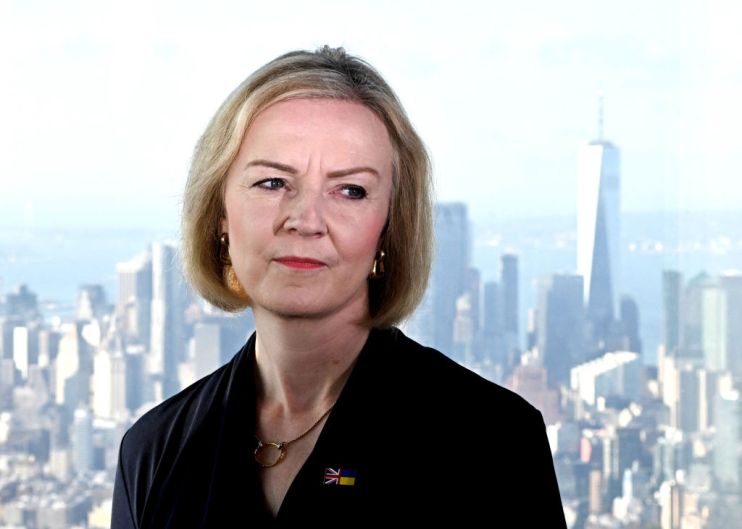Truss tells Wall Street execs that she wants ‘lower, simpler taxes in the UK’

Liz Truss has declared she will deliver “lower, simpler taxes” to drive investment during a charm offensive of powerful Wall Street executives.
The Prime Minister told the group of 15 business leaders during a New York roundtable that her plans will “make us a better place to invest and be unashamedly pro-business” and make the City “the most competitive place for financial services in the world”.
Truss also revealed that Kwasi Kwarteng will ease major EU regulations on financial services, including Solvency II and MiFID, during Friday’s mini-Budget.
The Prime Minister is in New York to attend the United Nations (UN) General Assembly, where she will deliver an address early tomorrow morning UK time.
Her messaging has been primarily around her plans to slash taxes and enact supply side reforms as she tries to send a message to international investors, including those at today’s business roundtable.
The UK’s level of business investment, and productivity, fell off a cliff post-Brexit and lags behind many other advanced economies.
Those in attendance today included Bain Capital managing director John Connaughton, BlackRock chief executive Larry Fink, JPMorgan Chase chief risk officer Ashley Bacon and General Electric chief executive officer Larry Culp Jr.
“Our long-term plan is to simplify Britain’s taxes and to make us a better place to invest and be unashamedly pro-business,” Truss said.
“And that’s every kind of business – whether it’s life sciences, whether it’s technology, whether it’s financial services.
“We want the City to be the most competitive place for financial services in the world, and we see that as a key part of the levelling up agenda, because when we unblock capital, that capital will be used across the UK to make every industry become more productive and competitive.”
She added: “Alongside the tax statement that the Chancellor will lay out, he’ll also lay out a series of supply side reforms to make our economy more productive over the long-term, in areas like financial services.
“Dealing with Solvency II, dealing with MiFID, in areas like infrastructure – getting roads built, getting broadband built, getting mobile phone masts built so you can get reception right across Britain.”
The Prime Minister promised during the Tory leadership contest to cancel a planned increase in Corporation Tax for the UK’s most profitable businesses and to reverse this year’s 1.25 percentage point increase in National Insurance.
These tax cuts alone will cost more than £30bn a year and it is now expected there will be more to come.
The Times reported last night that the government will also scrap stamp duty and Truss has hinted there could be more to come.